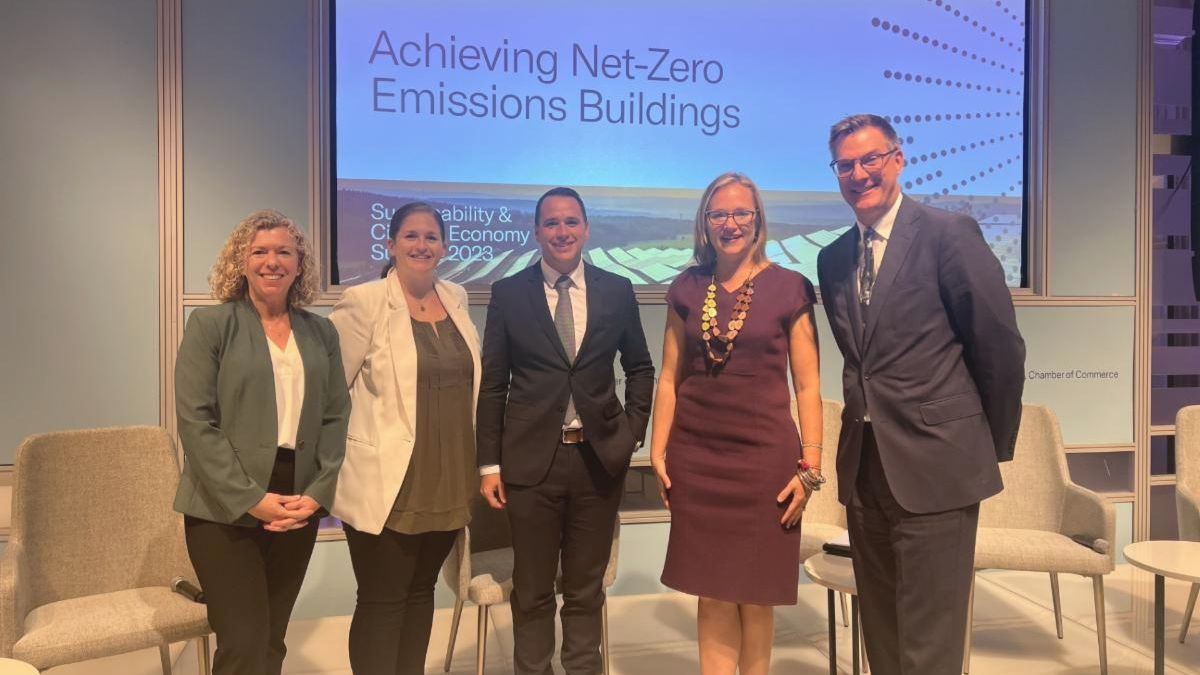By Lisa Jacobson, President, BCSE and Tom Lawler, Executive Director, Digital Climate Alliance
A big thank you to everyone who joined us for the second annual Federal Sustainability Summit in Washington, DC on October 6! This year’s event was hosted by the Business Council for Sustainable Energy (BCSE) and the Digital Climate Alliance (DCA), with support from Schneider Electric, and was held as day two of the U.S. Chamber of Commerce‘s 2023 Sustainability & Circular Economy Summit.
We were thrilled to convene public-private discussions on strategies for businesses to help the federal government achieve sustainability and resilience goals. As we look back on this exciting event, here are our top four insights from the Federal Sustainability Summit:
1. The Biden Administration is accelerating progress on federal sustainability goals.
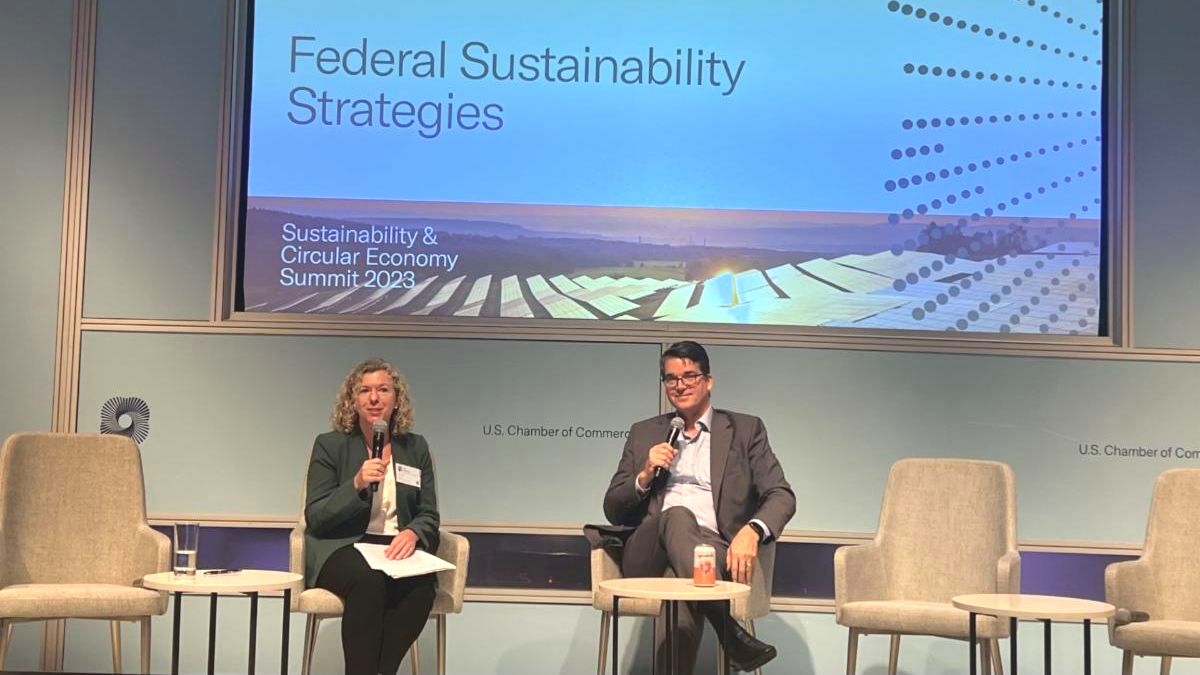
To start off the day, BCSE President Lisa Jacobson (left) sat down with Federal Chief Sustainability Officer Andrew Mayock to discuss the ability of the federal government to move markets and drive decarbonization, with the support of public-private partnerships nationwide.
Andrew reminded attendees that since the federal government is one of the nation’s largest employers and electricity buyers, it has a huge opportunity to drive emissions reductions through its own portfolio alone. He highlighted recent federal actions that are propelling progress toward the nation’s decarbonization goals, including efforts to electrify the federal fleet and decarbonize federal buildings through the Climate Smart Building Initiative. The Administration reports publicly on each agency’s progress on federal sustainability goals at sustainability.gov.
Andrew welcomes opportunities for public-private partnerships to help the Biden Administration’s sustainability goals. “My general call to action would be: ‘Join us, lend a hand,’” he concluded.
2. The federal government is setting the bar for the private sector to decarbonize buildings.
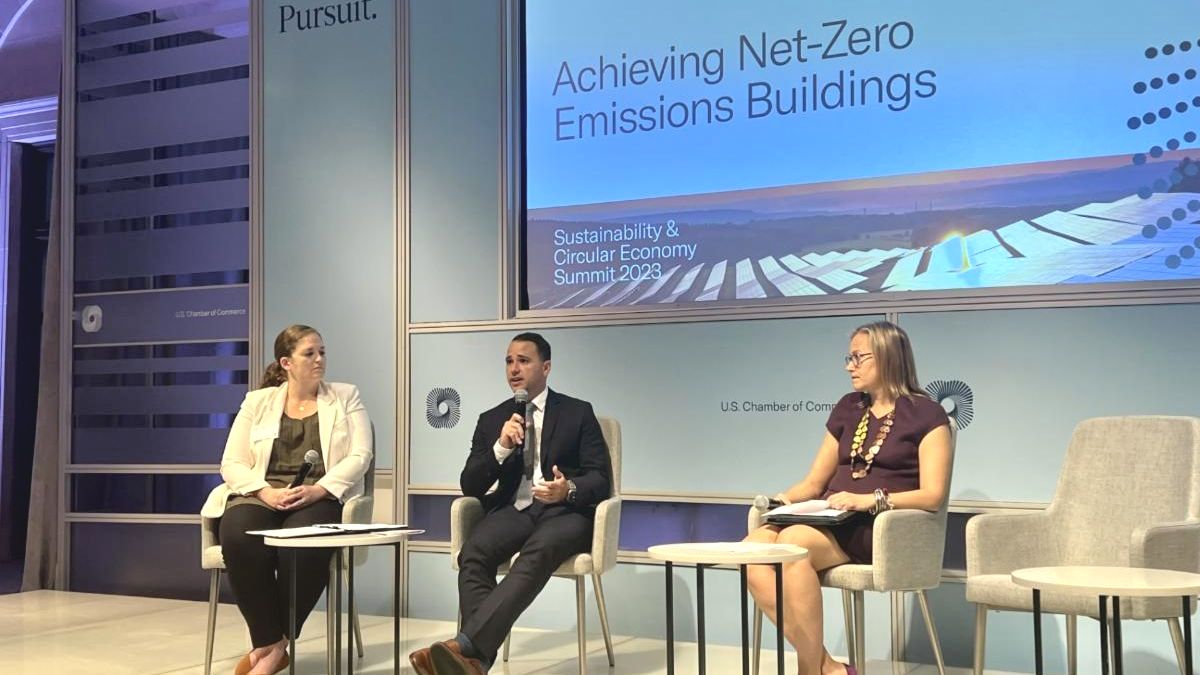
Lindsey Falasca (left), Director of Net-Zero Federal Buildings for the White House Council on Environmental Quality, moderated a conversation between Mike Kazmierczak, Vice President of Decarbonization for Schneider Electric and Mandy Mahoney, Director of the U.S. Department of Energy’s Building Technologies Office. The three experts discussed opportunities to increase building energy efficiency and achieve net-zero emissions.
Mandy provided insight on a forthcoming rule to set building performance standard (BPS) goals for new federal buildings, complementing current BPS rules for the existing building stock. Mike said rules like these help the Biden Administration pave the way toward achieving net-zero buildings, setting the bar for the private sector to accelerate their own efforts outside the federal government. In this vein, BCSE, DCA, and the U.S. Chamber of Commerce are eager to work with the U.S. Department of Energy Office of Energy Efficiency and Renewable Energy on the definition of net-zero buildings.
3. The U.S. Department of Defense has unique opportunities to drive the clean energy transition through its portfolio.
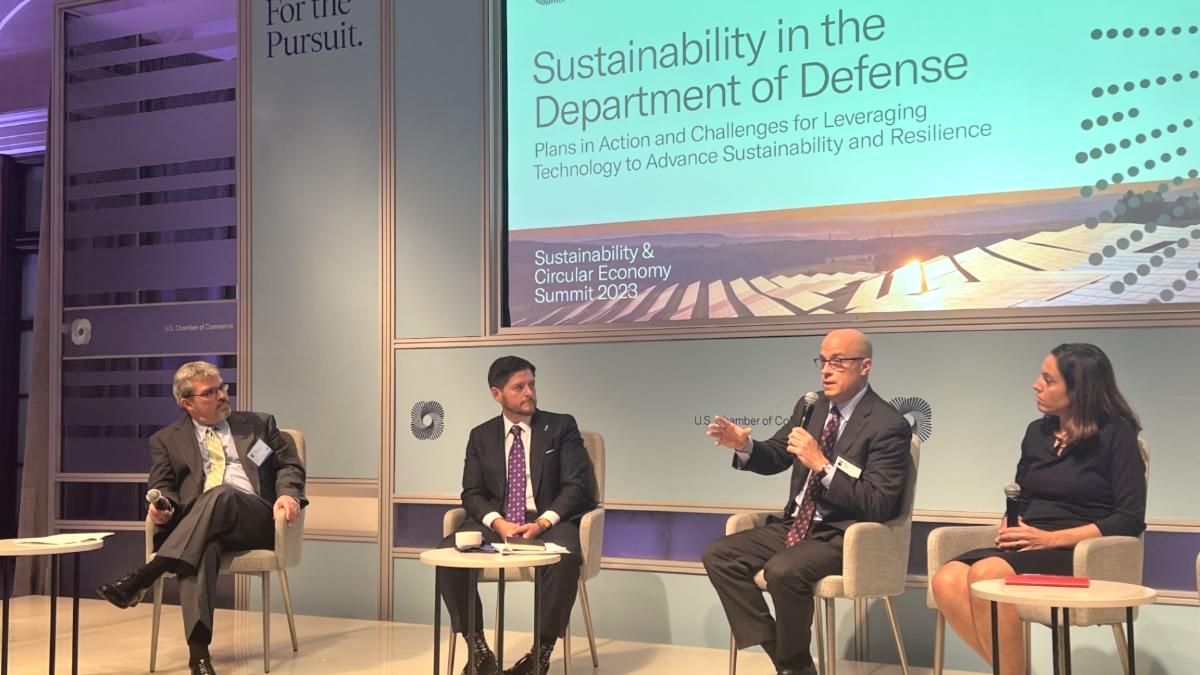
John Conger (left), Director Emeritus of the Center for Climate & Security, moderated a conversation between Brendan Owens, the U.S. Department of Defense’s Chief Sustainability Officer; Paul Farnan, Principal Deputy Assistant Secretary of the Army for Installations, Energy, and Environment; and Deborah Loomis, Senior Advisor for Climate Change to the Secretary of the U.S. Navy on sustainability in the U.S. Department of Defense.
The panel discussed what actions must be taken to build a resilient and decarbonized national defense ecosystem. Paul, Brendan, and Deborah highlighted case studies across the Defense Department’s broad portfolio, including energy efficiency improvements at military bases and the design of zero-emission military vehicles. For example, the U.S. Army Corps of Engineers Huntsville Center is currently accepting responses to a request for information, sent out to all vendors on its Multi-Award Task Order Contract for Energy Savings Performance Contracts.
In a subsequent Tech Talk, Brendan also spoke on the opportunities to improve key defense technologies like sustainable aviation fuel, which is critical to reducing the emissions of existing aircraft. “The innovation culture of DOD is something we’re trying to lean into heavily,” Brendan said.
4. Federal permitting and siting reform is imperative to deploying clean energy.
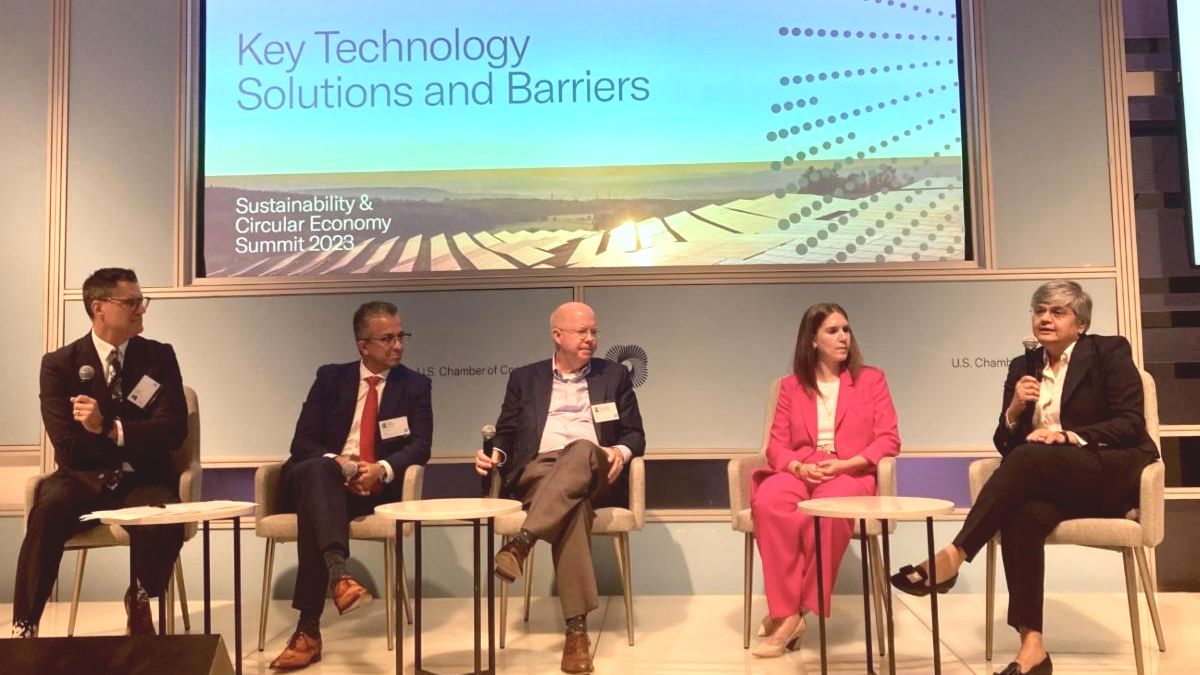
To close out the day, DCA Executive Director Tom Lawler (left) moderated an industry panel featuring Alphastruxure‘s Juan Macias, Nautilus’ Jim Connaughton, Cummins‘ Traci Kraus, and BHP’s Vandita Pant on permitting and supply chain barriers to advancing innovative clean energy technologies.
The panelists – representing diverse aspects of the clean energy supply chain, from critical mineral mining to energy efficiency solutions – shared stories of the regulatory obstacles hindering clean energy deployment. The industry experts agreed that there is a mismatch between the scale of global clean energy ambition and the reality of the complicated regulatory system.
Jim and Vandita shared statistics showing that it takes much too long for clean energy projects to complete the permitting process, and many projects fail to make it through at all. The panel emphasized the need for federal permitting and siting reform to achieving the speedy deployment needed to reach national and international decarbonization goals.
We appreciate all of your support and the incredible efforts that made this event such a success! Make sure you’re following BCSE and DCA on social media for the latest updates and information about future events.
About the authors: Lisa Jacobson is the president of BCSE. Tom Lawler is the executive director of the Digital Climate Alliance, a first-of-its-kind coalition of leading global companies with the purpose of informing public policy regarding the role digitalization can play as an enabler of climate solutions.

